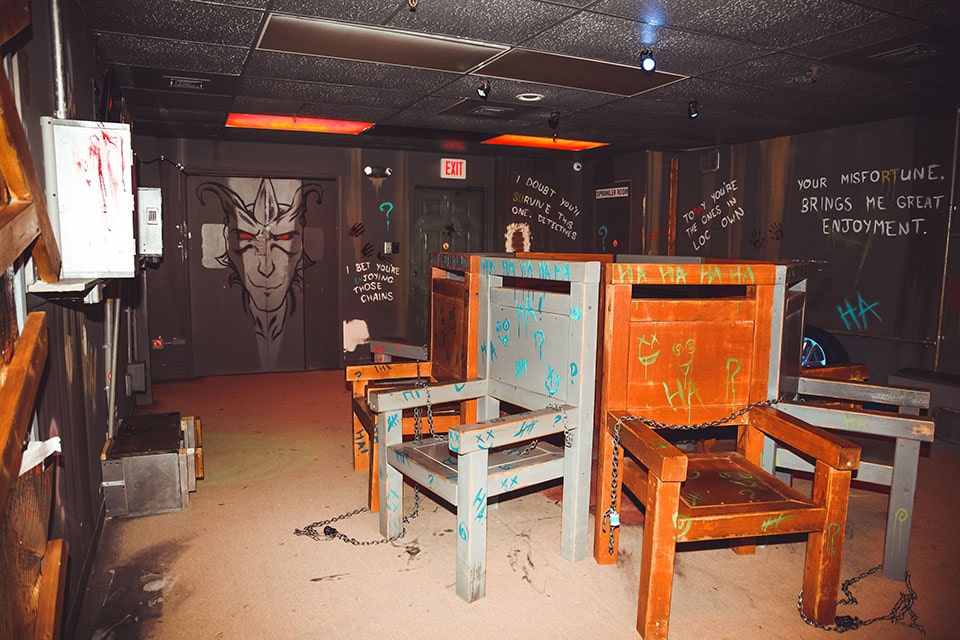Best Escape Room Experience-- Exciting Gamings and Puzzles for Groups
Best Escape Room Experience-- Exciting Gamings and Puzzles for Groups
Blog Article
Team Techniques: How to Collaborate Successfully in an Escape Area
Browsing the intricacies of a retreat space necessitates greater than plain excitement; it calls for a well-coordinated technique based in clear communication, tactical function tasks, and skilled time administration. Teams must actively pay attention to every member's understandings, designate roles that align with specific staminas, and maintain normal check-ins to make certain focus and prevent redundancy. By cultivating an atmosphere that values cohesion and flexibility, groups can considerably heighten their effectiveness and success rates. The subtleties of these methods can transform the experience, yet exactly how exactly can they be applied to maximize the potential for success?
Establish Clear Communication

To help with clear interaction, it is vital to mark a central point of call for details dissemination. Short, focused updates from each group member can keep the group educated without frustrating them with information.

Designate Roles Tactically
While clear communication establishes the structure for efficient synergy, assigning duties tactically ensures that each group participant's staminas are made use of successfully. In an escape area scenario, the time-sensitive and intricate nature of challenges demands an efficient method to job delegation. By identifying and leveraging specific competencies, groups can optimize their analytical capabilities and improve overall efficiency.
Somebody with a keen eye for information could excel in finding covert items, while a rational thinker might be better fit to fixing challenges. This function usually calls for solid business and social abilities.
2nd, guarantee that functions are versatile and adaptable. As new difficulties emerge, the team must be able to pivot, reallocating tasks as required. This adaptability helps maintain energy and protects against traffic jams that can happen as a result of inflexible function projects.
Ultimately, a tactical method to role assignment not just takes full advantage of the staminas of each group member but additionally cultivates a cohesive environment, driving the group in the direction of a successful escape.
Utilize Diverse Abilities
Identifying and taking advantage of the diverse abilities within your team can considerably boost your performance in a retreat space. Each staff member brings unique staminas to the table, and effectively leveraging these capacities can accelerate problem-solving and boost overall performance. As an example, a staff member with strong logical skills could excel at decoding complicated codes or patterns, while an additional with keen empirical capacities may promptly detect concealed ideas that might overlook.
Motivate team participants to voice their insights and ideas quickly, guaranteeing that all potential services are considered. Additionally, designating tasks that line up with each member's strengths can prevent traffic jams and make certain that progression is continual.
Additionally, variety in abilities commonly equates to diversity in thinking designs, which is very useful in a retreat space setting. While some challenges may call for rational reasoning and precision, others could profit from imaginative and association of ideas. By acknowledging and see post leveraging this diversity, teams can resolve a wider variety of challenges better, thus increasing their opportunities of an effective escape.
Manage Time Properly

Recognize visible problems and split jobs based on team participants' toughness, making sure that nobody is still. This method can help keep the team concentrated and stop time from slipping away undetected.
Furthermore, avoid one-track mind. If a challenge is taking too long, revolve team participants or go on to another difficulty, returning later with fresh perspectives. Interaction is critical-- maintain everybody updated on fixed challenges and staying tasks to stay clear of redundant initiatives.
Lastly, make use of any type of tips or ideas sparingly however strategically - best escape room. Recognizing when to request for assistance can conserve useful time. By sticking to these time administration concepts, teams can significantly enhance their chances of a successful and enjoyable getaway area experience
Debrief and Mirror
Reflection is a crucial facet of group development and enhancement in the context of escape rooms. When the obstacle is completed, whether effectively or otherwise, it is essential for the group to participate in a structured debriefing session. This procedure permits employee to examine their efficiency, recognize strengths, and pinpoint areas for enhancement.
Start the debrief by website link reviewing what went well. Highlight particular instances of efficient interaction, analytic, and collaboration. Identifying these positive behaviors strengthens them and urges their rep in future challenges.
Discuss moments of complication, miscommunication, or ineffective methods. Motivate an open and useful dialogue where team members can share their perspectives without fear of objection.
Verdict
In conclusion, effective cooperation in a getaway space is predicated upon clear communication, calculated function projects, the reliable usage of diverse skills, and efficient time administration. By developing a cohesive and flexible team environment, the possibility of effectively fixing puzzles and accomplishing the purpose my company of running away the area is dramatically enhanced.
Report this page